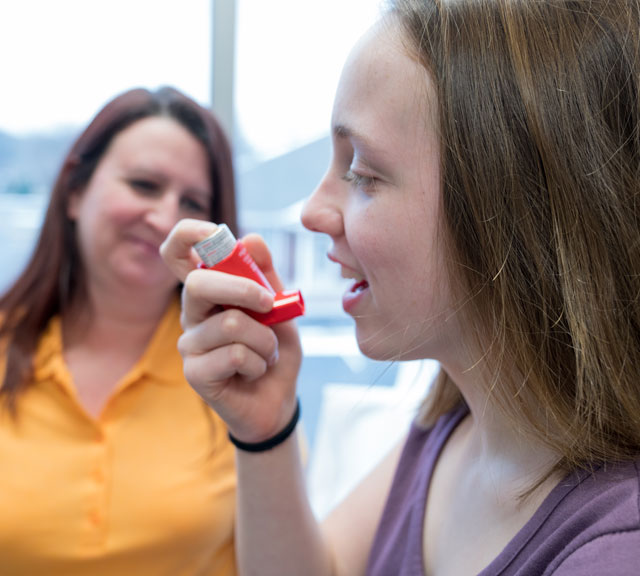Getting Teenagers to Take Their Meds

Find Your Perfect Match
Answer a few questions and we'll provide you with a list of primary care providers that best fit your needs.
Getting teenagers to comply with anything – ANYTHING – is a monumental parenting task. But few things require such exacting commitment and compliance as taking medication.
As your child enters the teen years and beyond, he’ll need to learn the importance of “sticking with the program” on taking and managing medications himself, particularly if he’s planning to leave home for college or other life adventures. To keep him on track, your teen will need to be armed with knowledge about his prescriptions and the ability to manage them on a day-to-day basis.
Pick one night a week (like Sunday evenings) where he will commit to refilling his pill box.
Getting Smart About Meds
Knowledge is a powerful tool when it comes to managing and complying with medication. Here are a few things your teen should do to stay in charge of his health and medicines:
- Read the labels on his prescriptions and, ideally, memorize the names and dosages.
- Ask his health care provider for key information about his prescriptions – “Why are they being prescribed?” “How do they help me?” “What are the side effects?” and “What is the right way to take them?”
- Know what to do if he misses a dose, the risks in skipping multiple doses, the risks in being inconsistent about taking them, and what to do if he accidently takes the same dose twice in one day
- Knows to tell his health care provider if he has a bad reaction to a drug or had one in the past, or is allergic to certain medications
- Tell his health care provider if he is having a tough time taking his medications or finding a way to fit them into his lifestyle
Organizing His Meds

Your child needs to find a way to stay on top of taking his meds and getting refills. Here are some steps he should take:
- Use a weekly or monthly pill box (available at most pharmacies and grocery stores) that allows him to sort his pills by day of the week
- Pick one night a week (like Sunday evenings) where he will commit to refilling his pill box. Not only will this give him an organized supply of pills for the coming week, but he’ll readily notice if he needs refills. This will also help him avoid forgetting what he’s taken, and accidentally taking another dose on the same day.
- Keep his pill box in a place where he will see it every day (e.g., next to his toothbrush or on his dresser)
- Try to take his meds at the same time each day and pick a time when he is regularly at home (like at bedtime)
- Use apps on his cell phone or computer (like Google Calendar) that will give him daily reminders to take his meds
- Keep an up-to-date list of all meds he’s taking, and carry it with him at all times. This includes the medication name (brand name or generic name), dosage amount, time of day when the med is taken, and what it’s being taken for (diagnosis).
Moving Away from Home
If your teen is moving away to college or somewhere else away from home, plan ahead for his medication needs. Work with him and his health care provider long before his departure to determine:
- How will refills be obtained?
- If he runs out of refills, will he need to come home to see his health care provider, or will he need to see a new one where he’s living? If it’s the latter, how will you handle transfer of medical history and other key information?
- How will your teen pay for his meds and refills?
- Where is the nearest pharmacy? Is it covered by your health care plan?
- What are the dangers of mixing prescription medications with alcohol or other drugs?
- Does he understand the dangers of sharing his meds?
It can be a little unnerving to think about your teenager being responsible for his own medical care and medications. But, armed with knowledge about his health and his meds (including why compliance is so important), and a system to manage them, you’re giving your teen the necessary tools to mature and enter adult life.
Find Your Perfect Match
Answer a few questions and we'll provide you with a list of primary care providers that best fit your needs.
Source: National Kidney Foundation; healthychildren.org (American Academy of Pediatrics); campusmindworks.org (University of Michigan); childmind.org




